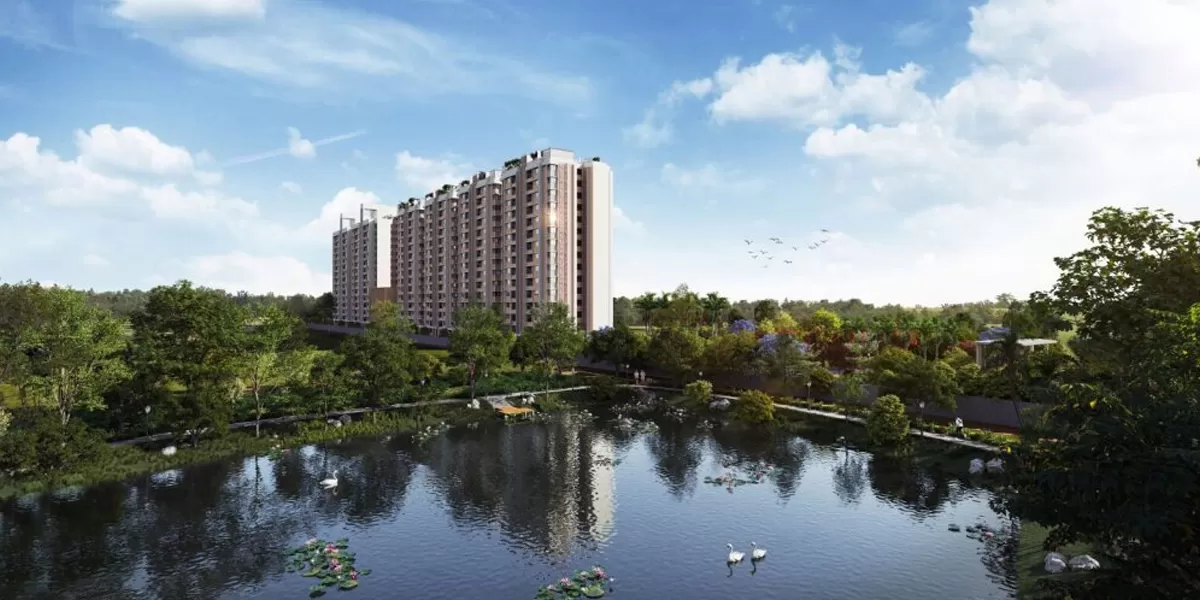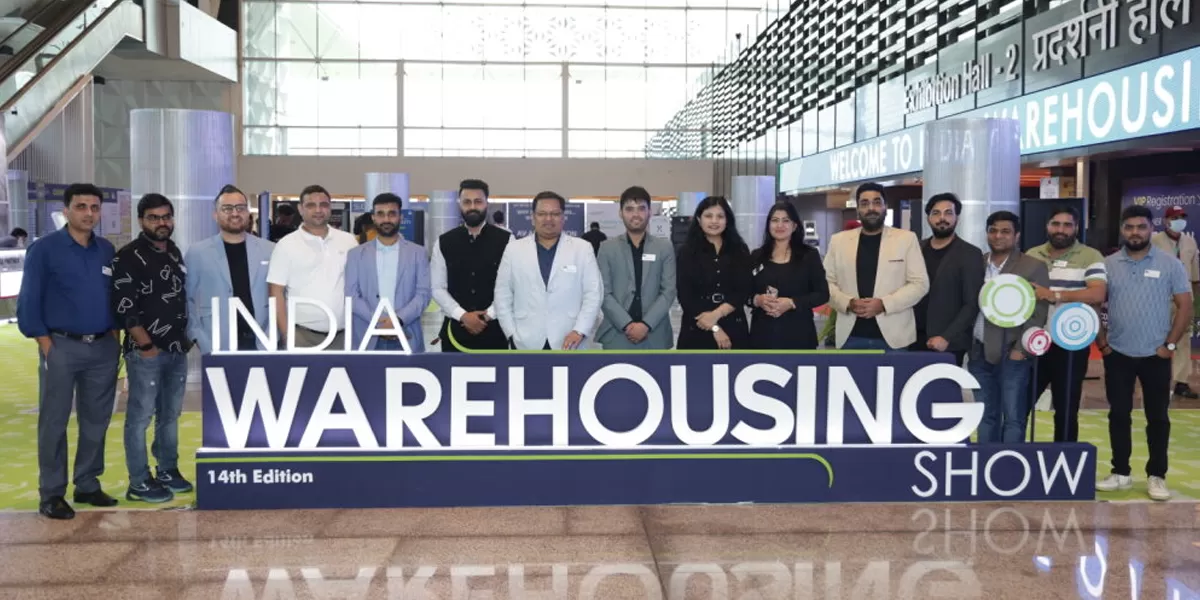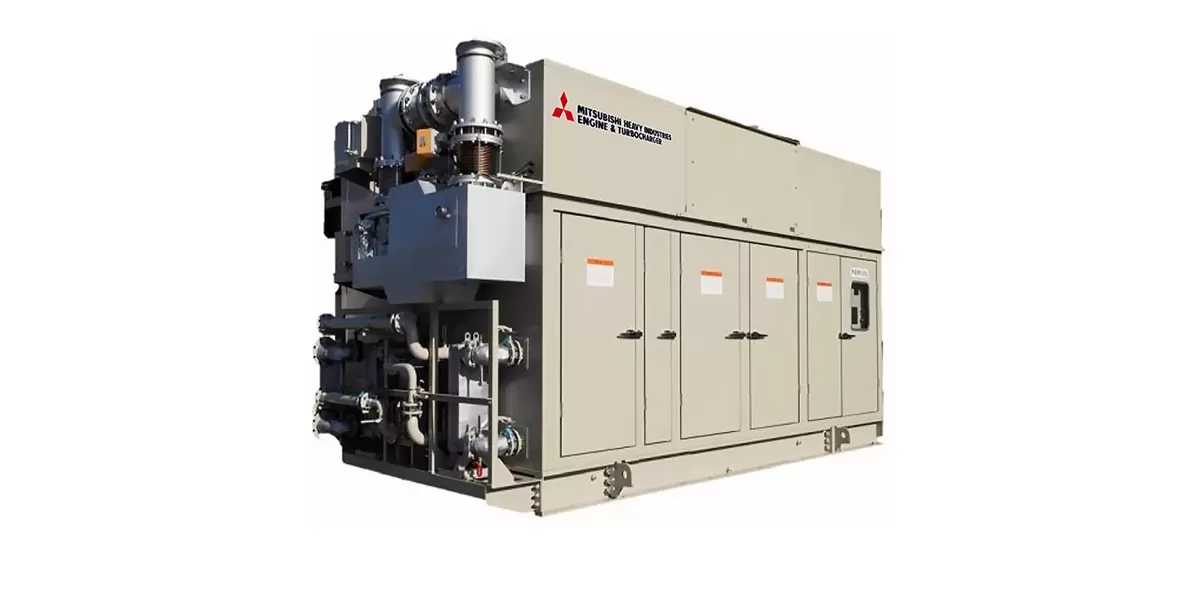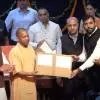- Home
- Real Estate
- Co-Creation

Co-Creation
India has managed to surpass even China to become the top investment destination with $63 billion flowing in. Our current Prime Minister has laid a new vision for the country and set about changing old laws and introduced or revised schemes to resuscitate urban areas. ¨Co-creation is a management initiative, or form of economic strategy, that brings different parties together (for instance, a company and a group of customers) to jointly produce a mutually valued outcome,¨ shared Pratap Padode, Founder & Director, Smart Cities Council India, and moderator of a captivating CW Round Table held on June 28, 2016, at Hotel Four Seasons in Mumbai. This set the mood for a brainstorming session among stalwarts from the construction and architectural fraternity. The session was also moderated by Falguni Padode, Group Managing Editor, ASAPP Info Global Group.
Can Indian enterprises contribute to India's smart vision of the government with initiatives such as Make in India, Digital India, Swachh Bharat Mission, Jan Dhan Scheme, 100 Smart Cities, Skill Development, Startup India, Domestic Efficient Lighting Programme, etc? Here are some excerpts from the experts:
 Juzer S Kothari, Managing Director, Conserve Consultants
Juzer S Kothari, Managing Director, Conserve Consultants
Co-creation is a new word. Any project is complex because different professionals come with different ideas to work together. The complexity of a project is important. It is a co-creation of projects. On the government being serious, yes they are; especially with Smart Cities, DPRs are out; good work is being done. Every city has their own unique footprint; the government has not made a framework for all cities to follow. All cities have their own means and uniqueness and should develop its own smart cities norms. Also, the government´s vision has been on the top, but implementation has been an issue, not only in India but across the world. Here, we need to step up too, it´s not just the government.
 Kamal Hadker, Chairman & Managing Director, Sterling Engineering Consultancy Services
Kamal Hadker, Chairman & Managing Director, Sterling Engineering Consultancy Services
We need a lot of experts on the panel, along with architects bringing in the latest technology to the table to assist them. When like-minded people and experts get together, we can have wonderful results. Cities have to be more liveable than smart; we can have our variety in terms of cities. We must learn to respect each other´s talents; I can see all the talents here. For buildings, everything is available, but we are all making fragmented efforts.
All MEP consultants, etc, should be together and help each other and cut down on cost, time and other factors. Housing is the biggest requirement of our country. Cities like Mumbai are quite different from the rest of India and we should think of smart cities as an opportunity, to create towns and smaller cities better than cities such as Mumbai. We should make cities liveable and at a much lower cost. If a project is designed, we should have a concrete plan, budget and all the requisites within a reasonable time (six months). We should bring in solar energy because that´s the need of the hour, and manage water in the most responsible way. So, we must make liveable cities within a reasonable distance from major cities, capable of communicating with the rest of the world so that people can migrate. It is possible to live in liveable cities than cramping up.
 Rahul Kadri, Principal Architect & Partner, IM Kadri Architects
Rahul Kadri, Principal Architect & Partner, IM Kadri Architects
The idea of co-creation between the government and citizens is an audacious one, which has never been done by the government before. The underlying factor behind the problem of implementation is that the vision is not shared; it does not come from the people. At present, there is no co-creation. If we have to create maximum value, what should we really focus on? Co-creation of the vision is important. While it has created a great amount of focus and thought around it, instead of smart, what if we could make our cities more liveable? The idea of smart cities seems to be driven by technology and corporates, whereas the government needs to be moved by people. We are talking about smart signals, lighting, etc. How much are we talking about the DCR of Mumbai if Mumbai needs to be made more liveable over the next 20 years? Have we asked the people where we should spend our scarce capital? Why are we thinking of spending so much on coastal road, etc? If co-creation is thought over, it is the opposite of what the PM or CM is doing. Co-creation is an idea whose time is come. I have got projects from the government, which are genuinely green buildings. MEP guys come in later to correct the mistakes an architect makes. I would change the Smart Cities Mission to creating Smart People, Make in India to Making People Great and Clean India to Making People Clean. We need to invest to build on the infrastructure of the mind, which is crucial. The government is serious, but needs to co-create. And, government schemes can encourage much more.
 Ani Ray, Managing Director, ACC India (Arabian Construction Company)
Ani Ray, Managing Director, ACC India (Arabian Construction Company)
Skill India, Jan Dhan, etc, are all converging into developments. Our FDI having surpassed China is a good development. India was not looked at very highly in the Gulf, but with the new government, there is a change. India is now compared to countries such as China and the US. The initiatives are converting.
 Yoshiyuki Mabuchi, Managing Director, Toshiba Johnson Elevators India
Yoshiyuki Mabuchi, Managing Director, Toshiba Johnson Elevators India
The government is serious. The schemes are related to issues and challenges experienced by most developed countries; for eg, Japan is currently trying to maintain a coexistence of sustainable economic growth and environmental conservation. India has a good advantage to have lessons around results. At Toshiba Group, as corporate citizens, we are keen to preserve the environment and create sustainable growth through our energy-saving and recycled products. We can contribute to the sustainable growth of India by offering energy-creating, energy-saving products and the government schemes encourage us in this respect.
 Percy Jijina, Director-Decorative Paints, Jotun Paints
Percy Jijina, Director-Decorative Paints, Jotun Paints
To contribute to the vision of co-creation, we would want to manufacture products that will last for more than 10 years. So we need global technologies to come in, and that will help us manufacture these products in India. Transparency will be the key in whatever we do in future. Personally, I do not like how our [political] system is performing - we don´t work as a team. Political parties need to come on a common platform to work towards a common economic agenda.
 Chirag Baijal, Director-Commercial Sales, UTC-Climate Control and Security (India)
Chirag Baijal, Director-Commercial Sales, UTC-Climate Control and Security (India)
Around 65 per cent of India´s GDP comes from domestic consumption, which differentiates us as an economy versus an export-led economy. To an extent, someone in the government has recognised the need to play economics and not politics. As a professional, I do not see the bench strength in the government as we see in business to carry this forward. ´Will India still be able to carry this forward if Modi is no more the PM?´ is the question. Digital India is extremely important and its true potential is not really seen. It can change the way business, trade and commerce happen in India. At UTC, we decided to partner with TERI and invest in auditing 100 existing buildings; we design and manufacture buildings as an engineering organisation. In this process, we realised that the potential India has in energy is huge. Also, every corporation will have to look at stakeholders´ returns. India is obsessively competitive and because the country is so value-sensitive, this destroys value for corporations. So, UTC has started partnering with the government to help us create a baseline. The government should invest more in creating standards and regulation, for eg RERA. With the Real-Estate Bill, as a consumer I feel more confident.
 Girish Shah, Director, The Wadhwa Group
Girish Shah, Director, The Wadhwa Group
The PM is a maverick; he is a great brand builder, with a combination of visionary thinking and execution. Look at the way he´s put out simple economic policies while building domestic competitiveness - increased FDI, the aviation policy, Make in India, Clean India, etc. Interestingly, it is the combination of economic and social policy that is driving India´s growth agenda. He has smartly shifted the sourcing policy to allow FDI and retail. These are all strong signals of a man who is clear about what he wants to do, taking with him the common man. As corporates, all of us need to have a sense of ownership, responsibility and accountability to drive this growth agenda for the country. It will help improve business for us as well. Important economic triggers allow us to believe that the buzzwords we hear are smart policy decisions, which will fundamentally change the Indian economy. Young entrepreneurs are seeing tremendous change with RERA, etc. It is an exciting time and there is tremendous opportunity for us.
 Nirmalya Chatterjee, Executive Director & COO, Trimble Solutions India
Nirmalya Chatterjee, Executive Director & COO, Trimble Solutions India
Look at any kind of elections happening - mostly the talking point has been infrastructure development on a broader level. If the government does not deliver on the development part, smart citizens will probably not buy any other argument. There are issues in government schemes; for instance, from 100 to the 20 cities, the stakeholders in smart cities don´t know the top three priorities. The 'smart cities' programme is essential, but we need policies and a process-driven activity. It should be a practical activity, not a PR-driven activity. With smart people, we also need smart technologies; whether for buildings, etc. The priorities for various cities are going to be different, based on various factors. But, is there any government mandate that lists the Top 3 priorities within defined timelines? They need top priorities on which to deliver. On Make in India, how it is going to be scalable further has to be seen. Clean India is not only about cleaning up roads and garbage. It has to be applied where major garbage happens, like waste at construction sites. Collective efforts are needed. India does not have any safety measures. We need Clean India to move towards industries as seen in developed countries. How can we have a tag of who is going to deliver what and when? In the UK and Singapore, BIM is becoming a mandate. BIM standardisation is a policy that needs to come from the government. I am hoping the Indian government too considers BIM on a policy-making level for buildings and infrastructure projects.
 Rajiv Balaggan, Sales Head-Architectural Glass India, Pilkington Glass India
Rajiv Balaggan, Sales Head-Architectural Glass India, Pilkington Glass India
The PM is a person with a mission. The idea that needs to come from people and their involvement is required, an idea that is viable and reasonable for the people. The idea and schemes have come out, but is the ball rolling? There should be some supervision on the schemes and initiatives - Smart Cities, Make in India - which will grow if a push is constantly given by the PM. The value-addition products we have abroad are being brought to the Indian market to acquaint people with these, which do not sacrifice the aesthetic look of the building.
 Rajesh Chawla, Director, Veka India
Rajesh Chawla, Director, Veka India
The government is serious but execution is the major problem, which looks like is a big challenge. Government schemes do encourage us. On execution of Swachh Bharat, we need to ask if it is the responsibility of the government and not citizens; for eg, good roads and traffic management. Infrastructure development is a challenge.
In March 2005, a newspaper carried a headline that read: ´Shanghai, here comes Mumbai.´ And 10 years down the line, we are still behind China. It is also a greater responsibility of citizens to come forward and add value. On Make in India, if well-educated people are not going to adhere to things, how is it going to work? Make in India is a good initiative, but do we have adequately skilled human resources? We have people who are well-educated, but are not skilled enough. So, skill is what we need. Also, we need to look at products and manufacturing standards in the country. In construction, there are swanky buildings with glass, but I feel most of the execution of curtain-wall glazing is lacking in standard - insulation, demarcation, fire safety are taken care of, but in curtain-wall glazing, absence of standards make proper execution a problem. So, if we do not have standards equivalent to global ones, there is no point. Only then can India become a global manufacturing hub and Indian products gain respect among Indian consumers. On ease of doing business, the foremost initiative that will benefit India is GST. There are challenges in execution, but it is not impossible. The intent is important.
 Nellie Samuel, Joint CEO and Executive Director, Knight Frank Property Services
Nellie Samuel, Joint CEO and Executive Director, Knight Frank Property Services
We are witnessing a lot of interest in Make in India and Smart Cities. Smart Cities is a reality.
It is not only real estate as an industry that is taking interest, but technology, IT and retail as well. On co-creation, I have never seen this kind of participation from the government and private sector before, which is needed at the moment. We are definitely reaching to be one of the top countries as per world standards, even in terms of talent. We need to create benchmarks ourselves; it is not only the ownership of the government. This is the best period where everyone should step in, participate and give impetus to the government to take these initiatives to the next level.
 R Ramakrishnan, Vice Chairman, Joint Managing Director & Group CEO, Polycab Wires
R Ramakrishnan, Vice Chairman, Joint Managing Director & Group CEO, Polycab Wires
On the concept of co-creation, we have an obsessively competitive mindset. We never think of what we can do to enhance customer experience or value. Here, our country is our customer and all of us are stakeholders, along with the government. We should think of what we can collectively do to make things sustainable, affordable, promote a better quality of life and create national wealth. There is so much knowledge but working together is lacking. There is a need to bring in different stakeholders to ensure that Make In India, smart cities, etc, happen. There are many industry-specific forums but not enough cross-industry forums. This is where ASAPP can play a vital role by bringing in different stakeholders in ensuring that smart cities happen. Never before have we had a PM in the position to articulate specific action at the Central and state levels, and who is willing to go forward and attract international investment, capital and support across continents to push through the agenda for change. We are fortunate to have a PM who is not playing politics but economics. The UID scheme is a complex project. The PM needs to pick up and align specific champions; for eg, is there a CEO for ´Make in India´ or ´Skill India´? There are numerous people in corporate India as well as public-sector managers who can be roped in with specific assignments and responsibilities to turn this into reality. Also, CII, FICCI, Assocham, etc. can partner. Corporate India is not putting in enough money. They think that having done 2 per cent CSR is enough. We need to take the requisite risks in reshaping the way we conduct business and work towards making our business more meaningful and sustainable in India. Also, creating Clean India can be a good business.
 In conclusion
In conclusion
Infrastructure is a huge requirement for the country and however much we do will not be enough. ¨The Metro is operating in eight cities; it is under construction in seven cities; and is being planned for 18 cities. The challenge lies in how to skill and employ the population. Largely, there is a sentiment that we are in good hands; we appreciate a person being decisive,¨ shared Pratap Padode. Further, the idea of Digital India has tremendous power considering India's huge population and the opportunity is immense in line with the vision of the PM. What´s more, the country´s future with L1 cannot be changed. ¨We need to redesign the procurement policy. We need to conceptualise sustainable projects,¨ emphasised Padode. Co-creation is how we all stand up to take the reins and responsibility, and that´s when new India will be created. All considered, connecting India is the ultimate vision.
- Pratap Padode
- Smart Cities Council India
- Falguni Padode
- ASAPP Info Global Group
- Make in India
- Digital India
- Swachh Bharat Mission
- Jan Dhan Scheme
- Skill Development
- Startup India
- Domestic Efficient Lighting Programme
- Juzer S Kothari
- Conserve Consultants
- Kamal Hadker
- Sterling Engineering Consultancy Services
- Rahul Kadri
- IM Kadri Architects
- Ani Ray
- ACC India
- Skill India
- Jan Dhan
- Yoshiyuki Mabuchi
- Toshiba Johnson Elevators India
- Percy Jijina
- Jotun Paints
- Chirag Baijal
- UTC-Climate Control and Security (India)
- Girish Shah
- The Wadhwa Group
- Nirmalya Chatterjee
- Trimble Solutions India
- Rajiv Balaggan
- Pilkington Glass India
- Rajesh Chawla
- Veka India
- Nellie Samuel
- Knight Frank Property Services
- R Ramakrishnan
- Polycab Wires
- UID Scheme
- CII
- FICCI
- Assocham
Do you feel the government is serious about seeing through the schemes it has envisioned? Do these schemes encourage you to explore new vistas of creativity in your business or profession? CW offers some insightful answers and interesting perspectives. India has managed to surpass even China to become the top investment destination with $63 billion flowing in. Our current Prime Minister has laid a new vision for the country and set about changing old laws and introduced or revised schemes to resuscitate urban areas. ¨Co-creation is a management initiative, or form of economic strategy, that brings different parties together (for instance, a company and a group of customers) to jointly produce a mutually valued outcome,¨ shared Pratap Padode, Founder & Director, Smart Cities Council India, and moderator of a captivating CW Round Table held on June 28, 2016, at Hotel Four Seasons in Mumbai. This set the mood for a brainstorming session among stalwarts from the construction and architectural fraternity. The session was also moderated by Falguni Padode, Group Managing Editor, ASAPP Info Global Group. Can Indian enterprises contribute to India's smart vision of the government with initiatives such as Make in India, Digital India, Swachh Bharat Mission, Jan Dhan Scheme, 100 Smart Cities, Skill Development, Startup India, Domestic Efficient Lighting Programme, etc? Here are some excerpts from the experts: Juzer S Kothari, Managing Director, Conserve Consultants Co-creation is a new word. Any project is complex because different professionals come with different ideas to work together. The complexity of a project is important. It is a co-creation of projects. On the government being serious, yes they are; especially with Smart Cities, DPRs are out; good work is being done. Every city has their own unique footprint; the government has not made a framework for all cities to follow. All cities have their own means and uniqueness and should develop its own smart cities norms. Also, the government´s vision has been on the top, but implementation has been an issue, not only in India but across the world. Here, we need to step up too, it´s not just the government. Kamal Hadker, Chairman & Managing Director, Sterling Engineering Consultancy Services We need a lot of experts on the panel, along with architects bringing in the latest technology to the table to assist them. When like-minded people and experts get together, we can have wonderful results. Cities have to be more liveable than smart; we can have our variety in terms of cities. We must learn to respect each other´s talents; I can see all the talents here. For buildings, everything is available, but we are all making fragmented efforts. All MEP consultants, etc, should be together and help each other and cut down on cost, time and other factors. Housing is the biggest requirement of our country. Cities like Mumbai are quite different from the rest of India and we should think of smart cities as an opportunity, to create towns and smaller cities better than cities such as Mumbai. We should make cities liveable and at a much lower cost. If a project is designed, we should have a concrete plan, budget and all the requisites within a reasonable time (six months). We should bring in solar energy because that´s the need of the hour, and manage water in the most responsible way. So, we must make liveable cities within a reasonable distance from major cities, capable of communicating with the rest of the world so that people can migrate. It is possible to live in liveable cities than cramping up. Rahul Kadri, Principal Architect & Partner, IM Kadri Architects The idea of co-creation between the government and citizens is an audacious one, which has never been done by the government before. The underlying factor behind the problem of implementation is that the vision is not shared; it does not come from the people. At present, there is no co-creation. If we have to create maximum value, what should we really focus on? Co-creation of the vision is important. While it has created a great amount of focus and thought around it, instead of smart, what if we could make our cities more liveable? The idea of smart cities seems to be driven by technology and corporates, whereas the government needs to be moved by people. We are talking about smart signals, lighting, etc. How much are we talking about the DCR of Mumbai if Mumbai needs to be made more liveable over the next 20 years? Have we asked the people where we should spend our scarce capital? Why are we thinking of spending so much on coastal road, etc? If co-creation is thought over, it is the opposite of what the PM or CM is doing. Co-creation is an idea whose time is come. I have got projects from the government, which are genuinely green buildings. MEP guys come in later to correct the mistakes an architect makes. I would change the Smart Cities Mission to creating Smart People, Make in India to Making People Great and Clean India to Making People Clean. We need to invest to build on the infrastructure of the mind, which is crucial. The government is serious, but needs to co-create. And, government schemes can encourage much more. Ani Ray, Managing Director, ACC India (Arabian Construction Company) Skill India, Jan Dhan, etc, are all converging into developments. Our FDI having surpassed China is a good development. India was not looked at very highly in the Gulf, but with the new government, there is a change. India is now compared to countries such as China and the US. The initiatives are converting. Yoshiyuki Mabuchi, Managing Director, Toshiba Johnson Elevators India The government is serious. The schemes are related to issues and challenges experienced by most developed countries; for eg, Japan is currently trying to maintain a coexistence of sustainable economic growth and environmental conservation. India has a good advantage to have lessons around results. At Toshiba Group, as corporate citizens, we are keen to preserve the environment and create sustainable growth through our energy-saving and recycled products. We can contribute to the sustainable growth of India by offering energy-creating, energy-saving products and the government schemes encourage us in this respect. Percy Jijina, Director-Decorative Paints, Jotun Paints To contribute to the vision of co-creation, we would want to manufacture products that will last for more than 10 years. So we need global technologies to come in, and that will help us manufacture these products in India. Transparency will be the key in whatever we do in future. Personally, I do not like how our [political] system is performing - we don´t work as a team. Political parties need to come on a common platform to work towards a common economic agenda. Chirag Baijal, Director-Commercial Sales, UTC-Climate Control and Security (India) Around 65 per cent of India´s GDP comes from domestic consumption, which differentiates us as an economy versus an export-led economy. To an extent, someone in the government has recognised the need to play economics and not politics. As a professional, I do not see the bench strength in the government as we see in business to carry this forward. ´Will India still be able to carry this forward if Modi is no more the PM?´ is the question. Digital India is extremely important and its true potential is not really seen. It can change the way business, trade and commerce happen in India. At UTC, we decided to partner with TERI and invest in auditing 100 existing buildings; we design and manufacture buildings as an engineering organisation. In this process, we realised that the potential India has in energy is huge. Also, every corporation will have to look at stakeholders´ returns. India is obsessively competitive and because the country is so value-sensitive, this destroys value for corporations. So, UTC has started partnering with the government to help us create a baseline. The government should invest more in creating standards and regulation, for eg RERA. With the Real-Estate Bill, as a consumer I feel more confident. Girish Shah, Director, The Wadhwa Group The PM is a maverick; he is a great brand builder, with a combination of visionary thinking and execution. Look at the way he´s put out simple economic policies while building domestic competitiveness - increased FDI, the aviation policy, Make in India, Clean India, etc. Interestingly, it is the combination of economic and social policy that is driving India´s growth agenda. He has smartly shifted the sourcing policy to allow FDI and retail. These are all strong signals of a man who is clear about what he wants to do, taking with him the common man. As corporates, all of us need to have a sense of ownership, responsibility and accountability to drive this growth agenda for the country. It will help improve business for us as well. Important economic triggers allow us to believe that the buzzwords we hear are smart policy decisions, which will fundamentally change the Indian economy. Young entrepreneurs are seeing tremendous change with RERA, etc. It is an exciting time and there is tremendous opportunity for us. Nirmalya Chatterjee, Executive Director & COO, Trimble Solutions India Look at any kind of elections happening - mostly the talking point has been infrastructure development on a broader level. If the government does not deliver on the development part, smart citizens will probably not buy any other argument. There are issues in government schemes; for instance, from 100 to the 20 cities, the stakeholders in smart cities don´t know the top three priorities. The 'smart cities' programme is essential, but we need policies and a process-driven activity. It should be a practical activity, not a PR-driven activity. With smart people, we also need smart technologies; whether for buildings, etc. The priorities for various cities are going to be different, based on various factors. But, is there any government mandate that lists the Top 3 priorities within defined timelines? They need top priorities on which to deliver. On Make in India, how it is going to be scalable further has to be seen. Clean India is not only about cleaning up roads and garbage. It has to be applied where major garbage happens, like waste at construction sites. Collective efforts are needed. India does not have any safety measures. We need Clean India to move towards industries as seen in developed countries. How can we have a tag of who is going to deliver what and when? In the UK and Singapore, BIM is becoming a mandate. BIM standardisation is a policy that needs to come from the government. I am hoping the Indian government too considers BIM on a policy-making level for buildings and infrastructure projects. Rajiv Balaggan, Sales Head-Architectural Glass India, Pilkington Glass India The PM is a person with a mission. The idea that needs to come from people and their involvement is required, an idea that is viable and reasonable for the people. The idea and schemes have come out, but is the ball rolling? There should be some supervision on the schemes and initiatives - Smart Cities, Make in India - which will grow if a push is constantly given by the PM. The value-addition products we have abroad are being brought to the Indian market to acquaint people with these, which do not sacrifice the aesthetic look of the building. Rajesh Chawla, Director, Veka India The government is serious but execution is the major problem, which looks like is a big challenge. Government schemes do encourage us. On execution of Swachh Bharat, we need to ask if it is the responsibility of the government and not citizens; for eg, good roads and traffic management. Infrastructure development is a challenge. In March 2005, a newspaper carried a headline that read: ´Shanghai, here comes Mumbai.´ And 10 years down the line, we are still behind China. It is also a greater responsibility of citizens to come forward and add value. On Make in India, if well-educated people are not going to adhere to things, how is it going to work? Make in India is a good initiative, but do we have adequately skilled human resources? We have people who are well-educated, but are not skilled enough. So, skill is what we need. Also, we need to look at products and manufacturing standards in the country. In construction, there are swanky buildings with glass, but I feel most of the execution of curtain-wall glazing is lacking in standard - insulation, demarcation, fire safety are taken care of, but in curtain-wall glazing, absence of standards make proper execution a problem. So, if we do not have standards equivalent to global ones, there is no point. Only then can India become a global manufacturing hub and Indian products gain respect among Indian consumers. On ease of doing business, the foremost initiative that will benefit India is GST. There are challenges in execution, but it is not impossible. The intent is important. Nellie Samuel, Joint CEO and Executive Director, Knight Frank Property Services We are witnessing a lot of interest in Make in India and Smart Cities. Smart Cities is a reality. It is not only real estate as an industry that is taking interest, but technology, IT and retail as well. On co-creation, I have never seen this kind of participation from the government and private sector before, which is needed at the moment. We are definitely reaching to be one of the top countries as per world standards, even in terms of talent. We need to create benchmarks ourselves; it is not only the ownership of the government. This is the best period where everyone should step in, participate and give impetus to the government to take these initiatives to the next level. R Ramakrishnan, Vice Chairman, Joint Managing Director & Group CEO, Polycab Wires On the concept of co-creation, we have an obsessively competitive mindset. We never think of what we can do to enhance customer experience or value. Here, our country is our customer and all of us are stakeholders, along with the government. We should think of what we can collectively do to make things sustainable, affordable, promote a better quality of life and create national wealth. There is so much knowledge but working together is lacking. There is a need to bring in different stakeholders to ensure that Make In India, smart cities, etc, happen. There are many industry-specific forums but not enough cross-industry forums. This is where ASAPP can play a vital role by bringing in different stakeholders in ensuring that smart cities happen. Never before have we had a PM in the position to articulate specific action at the Central and state levels, and who is willing to go forward and attract international investment, capital and support across continents to push through the agenda for change. We are fortunate to have a PM who is not playing politics but economics. The UID scheme is a complex project. The PM needs to pick up and align specific champions; for eg, is there a CEO for ´Make in India´ or ´Skill India´? There are numerous people in corporate India as well as public-sector managers who can be roped in with specific assignments and responsibilities to turn this into reality. Also, CII, FICCI, Assocham, etc. can partner. Corporate India is not putting in enough money. They think that having done 2 per cent CSR is enough. We need to take the requisite risks in reshaping the way we conduct business and work towards making our business more meaningful and sustainable in India. Also, creating Clean India can be a good business. In conclusion Infrastructure is a huge requirement for the country and however much we do will not be enough. ¨The Metro is operating in eight cities; it is under construction in seven cities; and is being planned for 18 cities. The challenge lies in how to skill and employ the population. Largely, there is a sentiment that we are in good hands; we appreciate a person being decisive,¨ shared Pratap Padode. Further, the idea of Digital India has tremendous power considering India's huge population and the opportunity is immense in line with the vision of the PM. What´s more, the country´s future with L1 cannot be changed. ¨We need to redesign the procurement policy. We need to conceptualise sustainable projects,¨ emphasised Padode. Co-creation is how we all stand up to take the reins and responsibility, and that´s when new India will be created. All considered, connecting India is the ultimate vision.

Shriram Properties Launches ‘Codename: The One’ in Bengaluru
Shriram Properties (SPL), a leading real estate developer focused on the mid-market and mid-premium segments, has announced the launch of its latest residential project under the banner “Codename: The One” in Bengaluru’s Electronic City corridor. This feature-rich gated community will offer 340 spacious 2- and 3-BHK residences, with a total saleable area of approximately 5 lakh square feet and an estimated revenue potential of over Rs 3.5 billion. The project is expected to be developed over a span of more than three years. Strategically located near the Bommasandra Metro stat..

India Warehousing Show 2025 Closes with Strong Global Presence
The 14th edition of the India Warehousing Show (IWS) 2025 concluded successfully at Yashobhoomi (IICC), Dwarka, drawing participation from over 300 exhibitors across 15 countries and welcoming 15,000+ visitors. Recognised as India’s leading platform for warehousing and logistics excellence, IWS 2025 offered a comprehensive display of cutting-edge automation, sustainable warehousing solutions, and next-gen supply chain technologies. The show was inaugurated by Shri Pankaj Kumar, Joint Secretary – Logistics, DPIIT, Ministry of Commerce and Industry, Government of India. In his opening a..

MHIET Launches 450kW Gas Cogeneration System with H₂ Co-Firing
Mitsubishi Heavy Industries Engine & Turbocharger (MHIET), part of the Mitsubishi Heavy Industries Group, has launched a new 450kW gas cogeneration system, the SGP M450, jointly developed with Toho Gas Co.,. The system supports hydrogen co-firing at up to 15 vol per cent, with no loss in performance or reliability. The system is currently available in the Japanese market, and has been developed from the existing GS6R2 city gas engine platform. Key modifications were made to the fuel gas and engine control systems to enable hydrogen co-firing. Verified through de..
Latest Updates
Advertisement
Recommended for you
Advertisement
Subscribe to Our Newsletter
Get daily newsletters around different themes from Construction world.
Advertisement
Advertisement
Advertisement
subscribe to the newsletter
Don't miss out on valuable insights and opportunities
to connect with like minded professionals
















